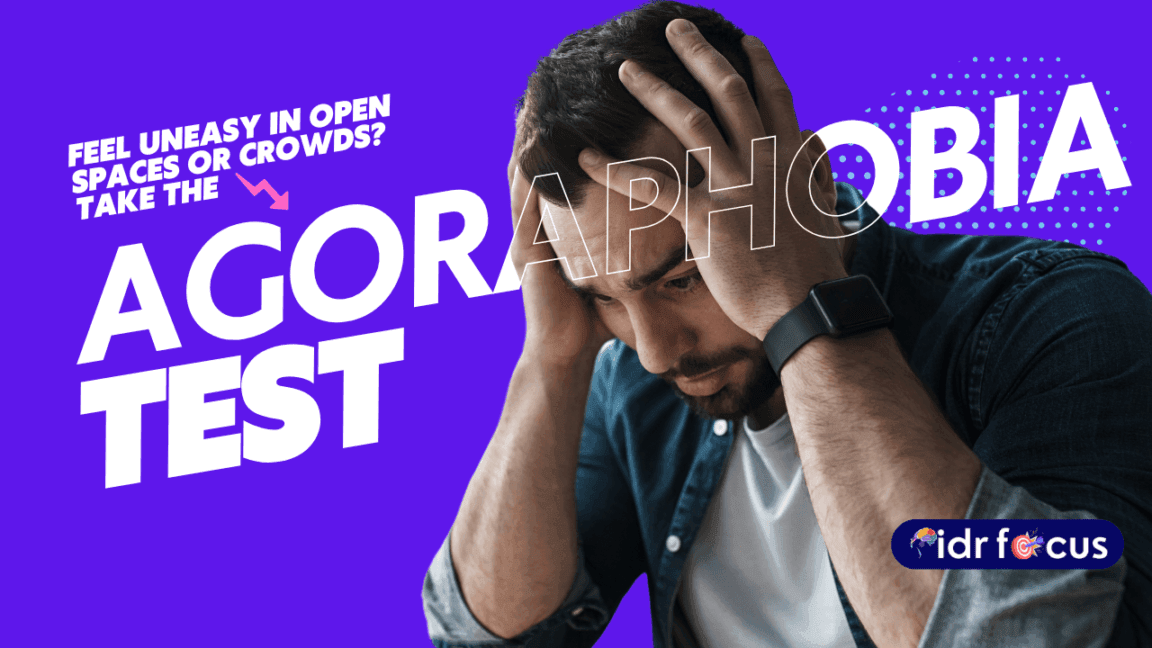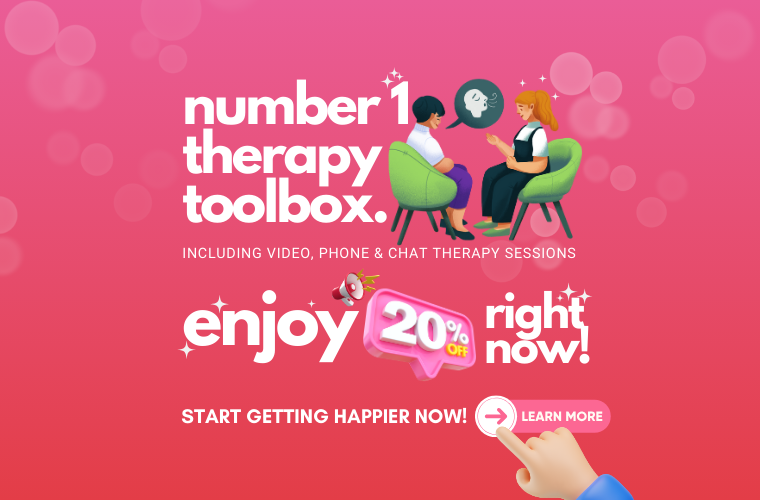Why Take the Agoraphobia Test?
Feeling anxious in certain situations is normal, but when this anxiety becomes intense, it may lead to avoidance behaviors that impact your life. Our Agoraphobia test is designed to help you understand if the symptoms you’re experiencing align with agoraphobia. By identifying these signs, you can take the first steps toward managing them effectively. Remember, agoraphobia is treatable, and with the right help, you can find ways to regain control and confidence in various situations.
Here are some reasons to consider taking the Agoraphobia test:
- Self-awareness: Recognizing the patterns in your reactions to certain situations.
- Early detection: Identifying the disorder early can lead to more effective intervention.
- Guidance for treatment: The results can help healthcare professionals tailor a treatment plan that suits your specific needs.
What Is Agoraphobia?
Agoraphobia is the intense fear of being in situations where escape might be difficult or where help may not be available if things go wrong. People with agoraphobia often avoid crowded places, unfamiliar settings, or certain types of social situations. This fear can limit daily activities and make it challenging to live life as fully as you might want. Recognizing the signs early can help you understand more about this condition and seek support.
How does the Agoraphobia Test work?
This Agoraphobia test consists of 15 questions that explore your experiences in different environments. Each question has five possible answers: Never, Rarely, Sometimes, Often, and Very Often. Answer as honestly as possible to get the most accurate result. The scoring system is tiered, helping you understand the level of concern and providing recommendations based on your results.
- Questionnaire Format: The test is often formatted as a questionnaire, where you’ll answer how often you experience certain symptoms using a Likert scale (ranging from “never” to “very often“).
- Evaluation of Responses: Your answers help indicate the severity of your symptoms and whether they align with the diagnostic criteria for agoraphobia.
- Immediate Results: After completing the test, results are typically provided, which summarize the likelihood of having agoraphobia based on your responses.
Scoring is assigned as follows:
- Low Concern (15-30 points): Minimal signs of agoraphobia; daily life is generally unaffected.
- Moderate Concern (31-45 points): Some signs of agoraphobia, possibly causing discomfort in certain settings.
- High Concern (46-75 points): Strong signs of agoraphobia, likely impacting daily life significantly.
Interpreting Your Test Results
- Low Concern: Your score suggests that you may occasionally feel anxious in certain situations, but it doesn’t significantly affect your day-to-day life. This is a positive sign, as you can likely manage occasional anxieties effectively.
- Moderate Concern: Your score indicates moderate signs of agoraphobia, which may cause discomfort or mild avoidance in specific situations like crowded places or unfamiliar environments. It may be helpful to focus on stress management techniques and practice gradual exposure to these settings.
- High Concern: Your score shows strong signs of agoraphobia, which might make it hard to navigate certain places or even avoid them altogether. This level of concern means you could benefit from professional support. Working with a mental health expert can help you regain confidence and learn ways to manage your anxiety in challenging settings.
What to Do After Taking the Agoraphobia Test?
If your quiz results suggest you might have agoraphobia, it is important to seek professional help. A mental health professional can conduct a more thorough evaluation and discuss potential treatment options with you, which may include therapy, medication, or a combination of both.
Recommendations to Prevent It:
- Identify Triggers: Reflect on situations that make you uncomfortable, like crowded stores or public transport. Noting these can help you work on them gradually.
- Practice Mindful Breathing: Techniques like slow, deep breathing can calm your nerves, especially when you feel overwhelmed.
- Gradual Exposure: Start small by facing mildly uncomfortable situations, and work your way up as you build confidence.
- Seek Professional Help: Speaking to a therapist trained in anxiety can provide effective strategies to manage agoraphobia.
- Build a Support System: Surround yourself with people who understand your experiences. Their support can help reduce feelings of isolation.
Instructions:
- Answer each question honestly.
- Your answers should be based on your feelings and experiences, not on what you think the ‘correct’ answer is.
- Tally your score at the end.
- Interpret your results based on the provided scale.
Disclaimer:
While this Agoraphobia test can give you insight, only a licensed mental health professional can diagnose you. If you’re experiencing distress, please consider seeking professional guidance.
Reference:
Dr. Karen Cassiday, Ph.D., Clinical Psychologist, and former ADAA President, specializes in the treatment of anxiety disorders, including agoraphobia. Her methods emphasize gradual exposure and resilience-building techniques, which have been shown to reduce symptoms and improve daily functioning for those dealing with agoraphobia.
Try Other related screening tests.
- Question of
Do you avoid crowded places because of discomfort or fear?
- Never
- Rarely
- Sometimes
- Often
- Very Often
Correct Wrong
- Question of
Do you feel anxious in large, open spaces?
- Never
- Rarely
- Sometimes
- Often
- Very Often
Correct Wrong
- Question of
Do you worry about not being able to leave a certain place if you feel overwhelmed?
- Never
- Rarely
- Sometimes
- Often
- Very Often
Correct Wrong
- Question of
Do you avoid public transportation because you fear feeling trapped or panicked?
- Never
- Rarely
- Sometimes
- Often
- Very Often
Correct Wrong
- Question of
Do you feel anxious when you’re far from home?
- Never
- Rarely
- Sometimes
- Often
- Very Often
Correct Wrong
- Question of
Do you avoid social gatherings because of the fear that you might feel panicked?
- Never
- Rarely
- Sometimes
- Often
- Very Often
Correct Wrong
- Question of
Do you find it hard to visit unfamiliar places without feeling anxious?
- Never
- Rarely
- Sometimes
- Often
- Very Often
Correct Wrong
- Question of
Do you experience intense fear when thinking about situations where you can’t easily escape?
- Never
- Rarely
- Sometimes
- Often
- Very Often
Correct Wrong
- Question of
Do you worry about being alone in unfamiliar areas?
- Never
- Rarely
- Sometimes
- Often
- Very Often
Correct Wrong
- Question of
Do you avoid certain types of buildings (e.g., malls, theaters) because of the crowds?
- Never
- Rarely
- Sometimes
- Often
- Very Often
Correct Wrong
- Question of
Do you feel uneasy in enclosed spaces like elevators or small rooms?
- Never
- Rarely
- Sometimes
- Often
- Very Often
Correct Wrong
- Question of
Do you find it hard to stay calm in situations where you feel “watched” or exposed?
- Never
- Rarely
- Sometimes
- Often
- Very Often
Correct Wrong
- Question of
Do you need to be near an exit in case you need to leave quickly?
- Never
- Rarely
- Sometimes
- Often
- Very Often
Correct Wrong
- Question of
Do you avoid traveling to unfamiliar cities or areas?
- Never
- Rarely
- Sometimes
- Often
- Very Often
Correct Wrong
- Question of
Do you feel distressed when others don’t understand your need to avoid certain places?
- Never
- Rarely
- Sometimes
- Often
- Very Often
Correct Wrong


